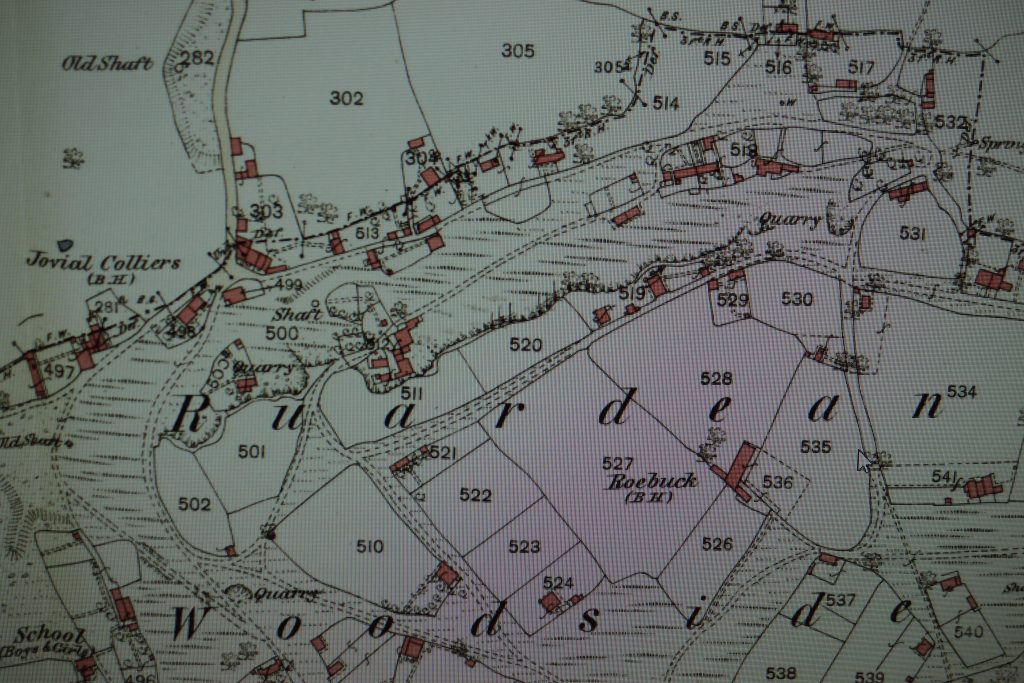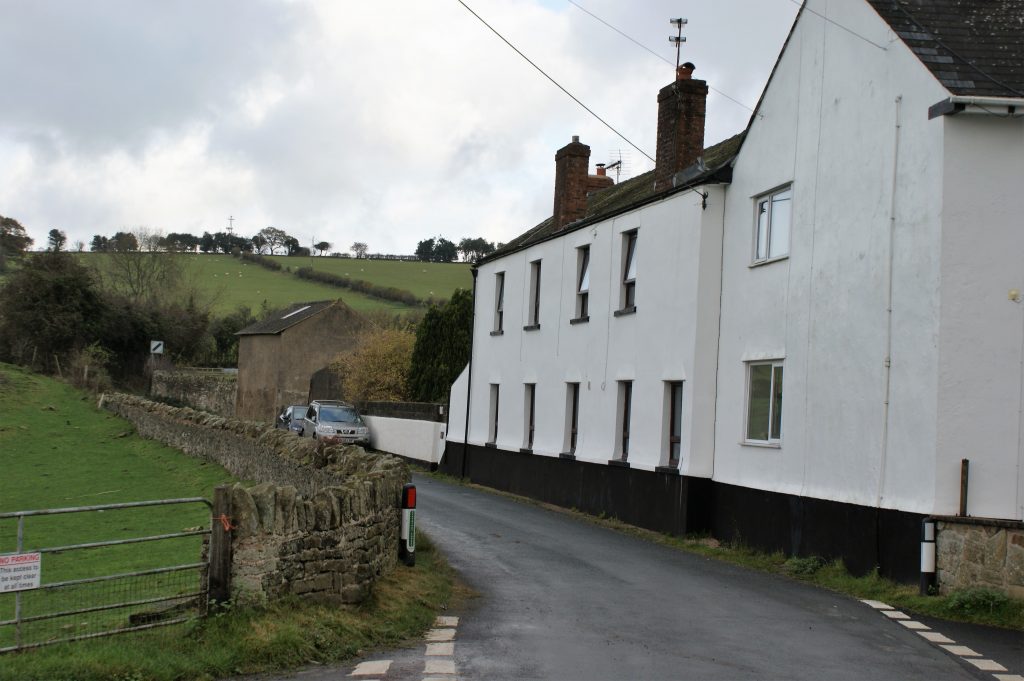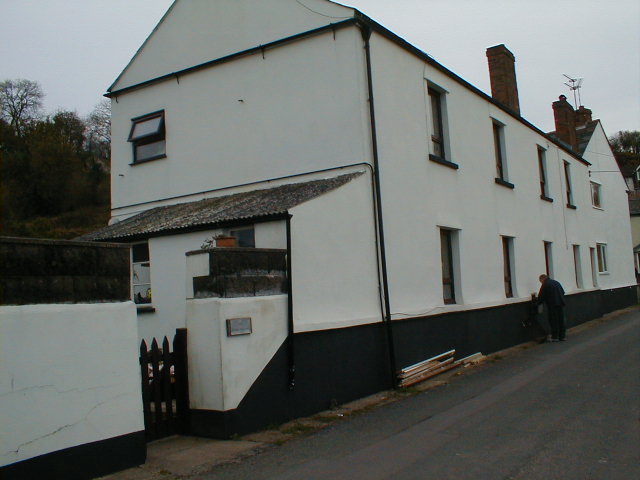The representatives of the late Alfred Wintle were the owners of the Jovial Colliers in 1891. Alfred was the brother of Thomas Wintle. In 1857 Thomas purchased a water driven corn mill at Bill Mills just outside Gloucestershire at Weston-under-Penyard. It was here that Thomas and Alfred started malting barley for the domestic market, providing malt to those pubs that still made their home-brewed ale. Thomas Wintle went on to establish the Forest Brewery in Mitcheldean in 1869 whilst Alfred carried on at Bill Mills, no longer malting but diversifying into bottling beer. Alfred also purchased several pubs of which the majority were absorbed into the Wintle’s Mitcheldean Forest Brewery estate. According to the details in the 1903 licensing records the Jovial Colliers at Ruardean Woodside was sold by Alfred and it became a free house. That seems to contradict later accounts that show the Jovial Colliers tied to Francis Wintle’s Forest Brewery. The annual rateable value of the Jovial Colliers was £18.0s.0d. in 1891 and 1903. It was licensed as a beer house and closing time was at 10 pm.

The lamentable tale of ‘who killed the bears’ is indelibly entrenched in Forest of Dean folklore, and for over 100 years it is said to be unwise to ask ‘who killed the bears’ in Ruardean whose descendants are accused of the barbaric attack on the innocent performing black bears. The ringleader of the gang that led to the senseless death of the bears on April 26th 1889 was found to be George Wicks, landlord of the Jovial Colliers in Ruardean Woodside. The evidence certainly seems to put the blame on Ruardean parishioners, but the reasoning behind the unruly behaviour may have been instigated by taunts and malicious rumours that might have originated as the performing black bears passed drunken colliers at the Engine Inn in Steam Mills as they left Cinderford.
The performing bears had been brought from France by four Frenchmen and they were on a tour of the Forest of Dean. Earlier in the day they had performed in Cinderford and were walking in procession to more shows in Nailbridge, Drybrook, Ruardean and ending up at nightfall in Lydbrook. By the time they reached Nailbridge a rumour had been started, presumably in jest from drunken colliers at the Old Engine and other pubs, that the bears had killed a child and mauled a woman in Cinderford. A lack of communication with the Frenchmen raised tensions and tempers ensued. The colliers followed the bears and their entourage through Nailbridge and onwards towards Ruardean shouting ‘kill the bears’. The bustling angry mob got larger and by the time they reached Ruardean it was 200 strong. In the chaos the bears broke free from their chains and were viciously attacked. One bear was shot dead. The Frenchmen were offered protection by Ruardean villagers who sheltered them in their houses from the baying mob. The Dean Forest Newspaper expressed their sympathy towards the Frenchmen and raised an appeal which more than compensated in monetary terms for the loss of the bears.
George Wilks, of the Jovial Colliers, was 49 at the time of the incident. Found guilty of affray he was ordered to pay a hefty fine of £26 or face the alternative of going to prison for two months. He was said to be a man of good character and paid the charge. His 21-year old-son, Robert Wilkes, was also among the guilty men. At Littledean Petty Sessions annual licensing day on August 23rd 1889, Police Superintendent Ford opposed the renewal of the license of the Jovial Colliers for George Wilkes. “This man, it was alleged, instigated the recent attack on the Frenchmen and their bears.” Fortunately for George, Mr. F. F Goold, instructed by Mr. Bradstock, appeared in court to support him and put in a document to support the license signed by a large number of inhabitants praying that it might be renewed. Superintendent Ford gave Wilkes a good character and his license was renewed.
The unanswered question, which seems to have never been satisfactorily explained, is exactly where and why George Wilks got involved. Was he amongst the drinkers heckling the procession as they left Cinderford, or did he leave the Jovial Colliers with the intention of confronting the Frenchmen and their bears? Furthermore, after the attack why were a ‘large number of inhabitants’ of Ruardean so keen to protect his license at the Jovial Colliers?

Lydia Wilce was the owner of the Jovial Colliers in 1903. The occupying landlord was Arthur Wilce. Presumably Lydia and Arthur were husband and wife.
The Jovial Colliers was referred to the compensation authority in 1907 and it was described as ‘being on the main road from Nailbridge to Ruardean’ The report went on to say: ‘The trade in 1907 was 102 barrels, the cost being £206.9s.0d. This represented 86 pints per day. In addition they sold minerals and cider, and some three persons a day were served with bread and cheese.’ The compensation authority did not recommend closure.
When the Jovial Colliers was offered for sale as part of the Wintles Forest Brewery property estate in 1923 it was described as ‘stone built and rough cast’ and comprised a bar, tap room, sitting room, beer store, kitchen and larder on the ground floor. There were four bedrooms, a club room and a box room on the first floor and cellarage in the basement. To the outside there was a ‘nice garden and two meadows in about five acres’ and the outbuildings consisted of two sets of stabling, granary, loft, pig cots., urinal and closet. ‘The property is of freehold tenure, and let to Mr John Gibbs on quarterly tenancy at the reduced rental of per £50 ann.’

The Jovial Colliers closed sometime in the late 1950’s / early 1960’s. The final pints of beer drawn from the pubs cellar were Cheltenham Ales. The property then became residential but has retained the name Jovial Colliers.
Landlords at the Jovial Colliers include:
1878 Thomas Voyce
1891 George Wilks
1903 Arthur Wilce
1923,1937 John Gibbs

